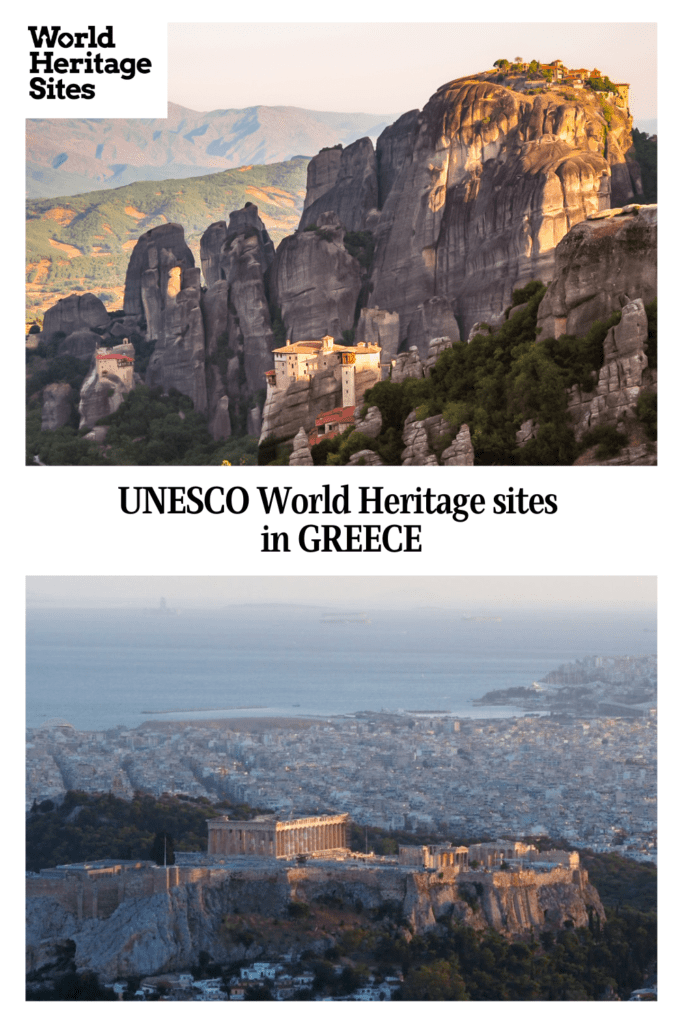Greece
It won’t come as a surprise that most of Greece’s UNESCO sites have to do with the Ancient Greeks. A smattering of other periods are also represented: the Ancient Myceneans, the proto-Christian period and the Byzantine period, for example. Use the map to jump to each site’s page – zoom as needed, or make the map full-screen. Alternatively, use the list of UNESCO sites below the map.
Central Greece
Acropolis, Athens
The most famous remnant of ancient Greece, standing high above the city of Athens.
Archaeological Site of Delphi
An important religious site for ancient Greeks, who considered it the center of the world.
Meteora
Perched on high rocks, these monasteries served as places of retreat and prayer for monastic communities.
Zagori Cultural Landscape
46 charming traditional villages connected by a network of cobbled paths, arched bridges and stone staircases.
Peloponnese
Archaeological Site of Olympia
Ruins of an important temple complex dedicated to Zeus, and the site of the first Olympic games.
Archaeological Sites of Mycenae and Tiryns
Two sets of ruins from the Mycenaean civilization in the Peloponnese, which preceded the Ancient Greeks.
Archaeological Site of Mystras
Atmospheric ruins of a complete Late Byzantine city.
Sanctuary of Asklepios at Epidaurus
Ruins of an ancient place of healing, with a huge and still intact Greek theater.
Temple of Apollo Epicurius at Bassae
A classical temple with many original columns and the oldest Corinthian capital ever found.
Macedonia
Archaeological Site of Philippi
Mount Athos
Paleochristian and Byzantine Monuments of Thessalonika
Archaeological Site of Aigai (modern name Vergina)
Aegean Islands
Delos
Extensive archeological site of an ancient Greek commercial center on an Aegean island.
Medieval City of Rhodes
A well-preserved medieval city with complete fortifications, built largely by Crusaders, with elements of Gothic, Byzantine and Ottoman architecture as well.
The Historic Centre (Chorá) with the Monastery of Saint-John the Theologian and the Cave of the Apocalypse on the Island of Pátmos
Pythagoreion and Heraion of Samos
Minoan Palatial Centres (Crete)
Ionian Islands
Old Town of Corfu
A strategically-important port city dominated by two Venetian fortresses and showing influences from later French, British and Greek rule.
Multiple regions
Monasteries of Daphni (in Athens), Hosios Loukas (Central Greece) and Nea Moni of Chios (Aegean Island)


